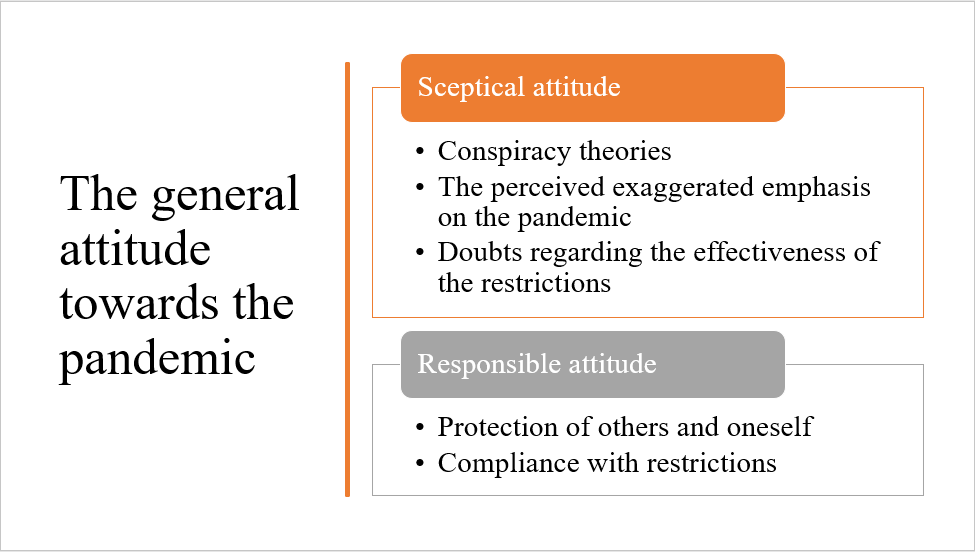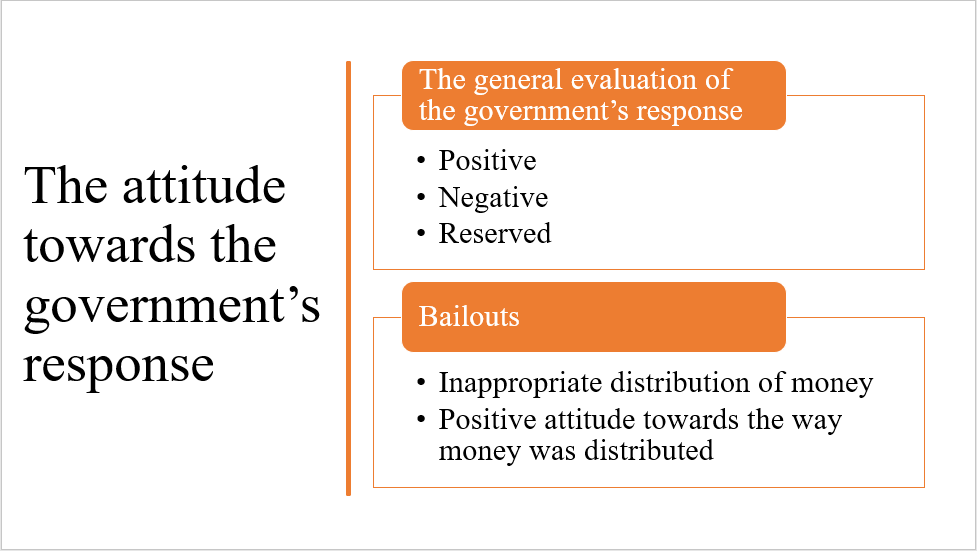By Gabija Norgilaitė and Benas Putrimas
The year 2020 was marked globally by the emergence of COVID–19 pandemic and a large variety of issues such as health care crisis or lockdowns followed by it. Lithuania was not an exception: people here were also affected by this virus either directly or indirectly. The qualitative field research performed in the summer of 2020 (just before the beginning of the second wave) showcases the opinions of people living in province about the pandemic. The collected data allows us to distinguish two main themes: 1) the general attitude towards COVID–19 pandemic and restrictions that followed it; 2) the way informants saw the government’s response. Even though opinions varied among people, we focused more on the sceptical attitude towards the pandemic as well as the critical response to the way the government handled the crisis. The sceptical attitude was expressed through such interesting categories as conspiracy theories related to COVID–19, the perceived exaggerated emphasis on the pandemic or doubts regarding the effectiveness of the restrictions. The critical approach towards government’s pandemic management, in turn, was described by such categories as “lying” or inappropriate distribution of bailouts.


See the recorded conference report here [Lithuanian].
About methodology
In summer 2020 IIRPS VU (VU TSPMI) Students’ Scientific Society led by prof. dr. Ainė Ramonaitė carried out a fieldwork in rural areas of Lithuania. The initiative was a part of “Lithuanian National Electoral Study 2020” and its results were presented in the conference “Lithuania after the Seimas elections 2020” on 26 March, 2021. We decided to share some of the students’ papers in this blog.
The fieldwork took place in a small town (appr. 5000 people) and a village (appr. 300 people) on 5-6 August, 2020 (notably – before the second wave of COVID-19). The area differs from Lithuania as a whole in terms of its electoral choices in the Seimas elections in 2020 – conservative Homeland Union and Lithuanian Socialdemocratic Party were way less popular here, while the Farmers and Greens Union (former governement party), Labour Party and Liberal Movement gained significantly more votes than in the rest of the country.
The chosen fieldwork method was semi-structured qualitative interview. During the field research a team of 8 people took 20 interviews, usually, between 30 and 60 minutes in length. The researchers chose variety sampling. There were 9 males and 14 females in the sample (contrary to the researchers’ wishes sometimes 2 people participated simultaneously). Among them there were people with higher, vocational or high-school education, old age pensioners, students, workers and unemployed people. 4 of the informants fall in to the 20-35 age category, 3 to 35-50 category, 8 to 50-65 and 8 were older than 65.
Later, the qualitative interview analysis has been carried out in three rounds. Firstly, the interview transcripts have been coded into different themes (some of which are reflected by the topics of the conference papers). Secondly, each theme has been assigned two researchers who would then inductively code their theme independently from one another. Finally, the codes have been discussed, agreed upon and analyzed by both researchers.
Rich qualitative data gave students a better understanding about the inner logic, feelings and actions of Lithuanian people and they’d like to share it with the political science community.